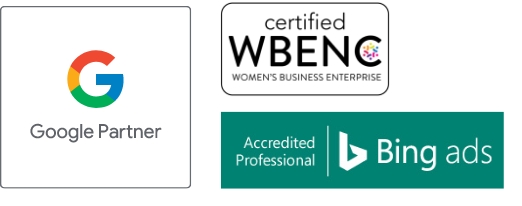
How Healthcare Organizations Can Improve AI Search
When patients search online for “urgent care near me open now” or “what are the symptoms of strep throat?”, AI-powered search engines now provide direct answers. That means your healthcare organization’s ability to appear in those results directly impacts patient acquisition, trust, and outcomes.
The key? AI searchability, which means ensuring your organization’s content and digital presence are designed so AI models can find, understand, and recommend you. Here’s a five-step playbook tailored for healthcare organizations.
1. Prioritize Patient-Centered Content and Experience
To earn patient trust, healthcare content must be clear, accessible, and rooted in real needs – both medical and personal:
- Answer Common Patient Questions Clearly: Include content like, “When should I see a doctor for a cough?” with a clear response.
- Include Local Context: Include details like “Pediatric urgent care in Boston, open 7 days a week.”
- Enhance Accessibility: Follow WCAG 2.2 AA, offer multilingual pages, and ensure mobile-first performance.
- Show Expertise and Empathy: Include author bylines, credentials, and plain-language summaries; note clinical reviewer and last review date.
Add FAQ sections that mirror real patient queries in a conversational tone. These formats are easy for AI systems to parse and can power quick answers, but inclusion isn’t guaranteed.
2. Make YOUR WEBSITE Easy for AI to Understand
To make healthcare websites AI- and search-friendly, structure and clarity matter as much as the content itself:
- Apply Structured Data: Use appropriate types to improve machine readability and eligibility for enhanced displays.
- Keep Key Info in HTML: Put insurance accepted, office hours, provider bios, and key instructions in HTML (avoid PDFs/images for critical content). This information needs to be updated regularly to keep current.
- Ratings & Specialties: If you show ratings, use compliant third-party sources (e.g., CMS star ratings) and avoid protected health information in responses. Mark up specialties and locations consistently.
3. Measure What Matters: Beyond Clicks
In healthcare, success isn’t measured by pageviews alone. What matters is whether patients find answers, take action, and access care. AI search can answer questions before a click. Track appointment requests, telehealth signups, call-tracking conversions, portal logins, and engagement on symptom/condition pages. Since most AI platforms don’t reliably pass referrers, think about gauging impact with proxy metrics (brand/search lift, assisted conversions, path analysis, simple surveys like “How did you find us?”) rather than relying only on strict last-click attribution.
4. Adapt to the New Rules of AI Search
To stay visible in an AI-driven search world, healthcare websites need to anticipate natural-language queries, provide concise answers, and highlight credibility:
- Optimize for Conversational, Symptom-Based Queries: “What’s the difference between urgent care and ER?”
- Take an Answer-First Approach: Deliver the concise answer upfront, then add context.
- Design for Snippets: Use lists, visuals, and comparison tables (e.g., “Flu vs. Cold Symptoms”).
- Build Trust Signals: Display clinician credentials, accreditations, and third-party quality benchmarks (e.g., CMS/HCAHPS) where permitted; avoid protected health information in public reviews and responses.
Set up easy-to-understand hubs focused on specific health conditions (for example, a “Diabetes Care Center”). These hubs give AI a reliable place to look up trusted information and share it back with people.
5. Audit and Optimize for AI Visibility
AI search tools are now giving people direct answers. If your content shows up there, it can shape how patients find you, how much they trust you, and even the results they get — but only if your information is accurate, easy to read, and well-organized.
- Test Visibility: Spot-check key queries in Google AI Overviews, Bing Copilot, and ChatGPT; results vary by user and change frequently. Treat as qualitative input.
- Keep Listings Accurate: Maintain Google Business Profiles and relevant directories (e.g., Healthgrades, Zocdoc, insurer networks).
- Update Clinical Pages: Refresh whenever guidelines change and at least annually; include reviewer name/credentials and review date.
AI search is becoming the new front door to healthcare discovery. To be visible and trusted, your website must offer a smooth experience — but it’s your content that matters most. Clear answers, strong governance, and well-structured writing not only build trust with patients but also help AI cite you as a reliable source. And while SEO still drives traffic through Google, success now means doing both: optimizing for search engines and writing for AI.
Get a FREE Website AI-Searchability Diagnostic Report – Uncover how AI reads your healthcare content. Contact LIGHTSTREAM to request your free website AI searchability diagnostic report today.
